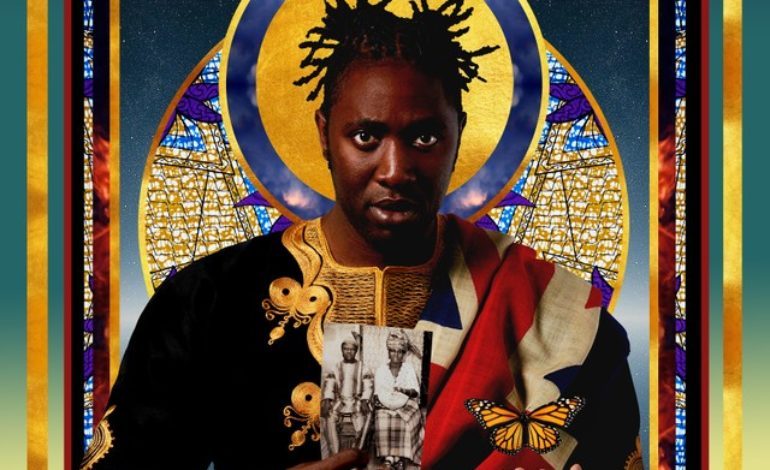

Discontented but hopeful, musical kaleidoscope
Not comfortable repeating musical forays, on his fourth official solo album, Kele Okereke diverges from his folksy and acoustic Fatherland, with the more strident and outward-looking 2042. If there is a closest sibling of 2042, it would have to be Okereke’s soundtrack, Leave to Remain, written for his musical of the same name. Exploring similar ground thematically, the albums touch upon the political upheaval, social turmoil and more personal reflections of love and spirituality, all through the fractured lens of 2019 U.K.
Sonically, 2042 draws a lot of inspiration from African dance and Afrobeats. Mixed with rock guitar riffs and sparse electronic elements, the juxtaposition serves as a musical mirror to the multifaceted nature inherent in the subject matter of the album and the artist himself. With myriad vocal deliveries ranging from spoken-word interludes, aggressive vocal bursts bordering on rap and full-bodied singing, Okereke brings to life the human voices vying to be heard through the chaos.
The first part of the set leans heavily political. “Jungle Bunny” paints a portrait of the wealthy, elite black who “go(es) home to your (his) house in Calabasas, against the far-harsher reality of life as an average black Westerner, as “they bounce(d) his black ass from the club.” The catchy guitar line and infectious rhythm provide a Trojan Horse of sorts, delivering a poignant concern under the guise of a pop hit. “Let England Burn” veers into rap-rock with its distorted guitar and rapid vocals ominously decrying the social effects of Brexit, while even more direct is “St Kaepernick Wept,” echoing the Black Lives Matter movement and paying tribute to the athletic icon across the Atlantic. The hymn-like background vocals pull Okereke to his melodic proclamation that “I don’t believe in Heaven, but I believe in you.”
2042 shifts tone and focus midway through, from the political to the personal and from the bold to the nuanced. The loungey “Ceiling Games” is the story of a love triangle, told against the backdrop of the tumultuous world outside. Structurally more complex than the beginning of the album, the gentle melodies shift into a minor-key outro that satisfyingly layers distorted guitar lines and a fading vocal refrain. “Between Me and My Maker,” rooted in indie rock, adds to the musical depth of the collection as an upbeat multipart paean that glows with bright, fuzzy guitar riffs that carry the tune into a spacey, vocoder-laden resolution.
Never far from Okereke’s mind, the strife of modern life pervades the compositions with serious and personal entries like “Cyril’s Blood” and “Secrets West 29th.” When arriving at “Ocean View” and “Back Burner” the mellowed tone is a welcome relief even if those songs also deal in weighty emotions, in contrast to a gentler musical mood.
2042 is a challenge. It will take most listeners a couple of times to uncover and digest the heavy subject matter and lyrical nuance, and the various musical changes in tone, shape and genre create an original, sonic collage that can be jarring at first. Ultimately, the fierce political nature may be too much for some, and it does obscure the music at times. However, Okereke’s various voices are all honest and well-thought. Overall, the music, with a couple of exceptions, excels in its quality and exceptionally wide diversity, and merits at least a couple listenings before a final judgment is levied.
